On The Vine: Chaka chaka. It’s Patois for mess

Hey. How ya doing? Cool, cool.
The New York Times published a story over the weekend confronting that “late-stage pandemic burnout” we’ve all been dealing with lately. Don’t know about you, but it’s hit me hard.
Roughly 700 people responded to a question The Times sent out to readers about work burnout folks all over are experiencing.
The responses were funny, vulnerable and indicative of a universal sense of: “We’ve had enough.” The collective picture they painted was of a work force struggling to do tasks that were once easy, people who know they are lucky to have a job but dream of quitting, and who would do anything to never have a Zoom meeting again.
I highly recommend you take a break, drink some water, and check it out in solidarity...
Around the block
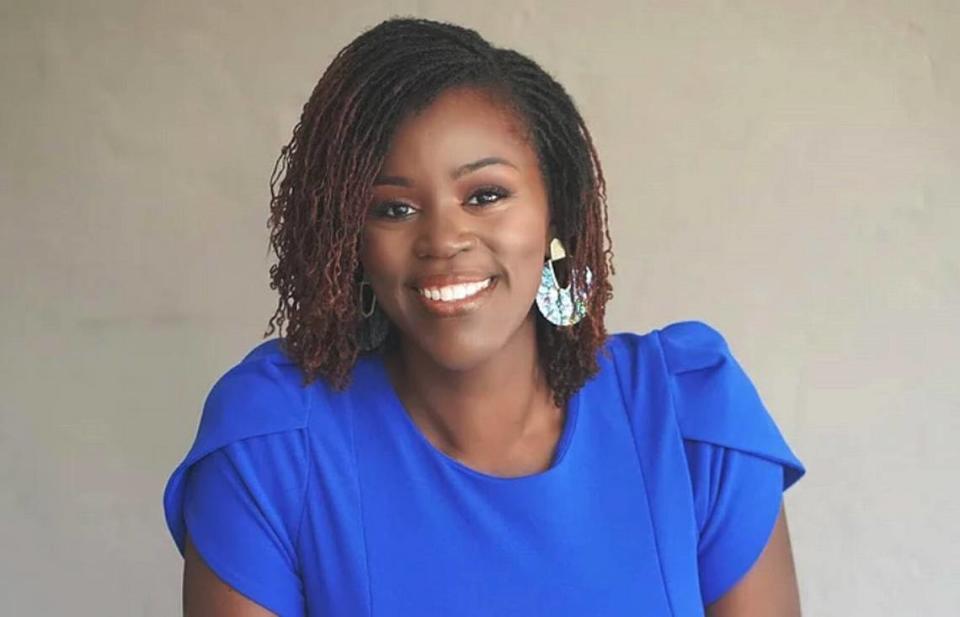
Self proclaimed ‘underdog’ Tanesha Ford defeats Kansas City school board chair Pattie Mansur for her seat
This story has been at the center of a lot of controversy.
After an election during which time and again questions were raised regarding why so much money was being spent on a local school board race, and where that money was coming from, Tanesha Ford ultimately unseated Kansas City school board president Pattie Mansur.
Ford, executive director of Kauffman Scholars, previously described herself as the “underdog” in the race, taking on a well-known incumbent.
“This campaign was backed by people, real everyday people, who were willing to put their money where their faith was,” Ford said in an email Tuesday night. “I spent hours listening, learning and sharing with the community. I heard so much about what concerns you as teachers, parents, business owners and taxpayers (have). Many of you shared your thoughts about what you think is necessary to make KCPS the best fit choice. I heard you.”
So much controversy bubbled up from the race in part because Ford, along with Kandance Buckner, who won the district’s sub-district 5 seat with just over 50% of the vote, were backed by the nonprofit Blaque KC — short for Black Leaders Advancing Quality Urban Education. The group spent more than $100,000 in the two contested races, according to reports with the Missouri Ethics Commission.
Mansur said that amount of money was “unprecedented for Kansas City Public Schools or for any public school race in the Kansas City metro area.”
The founder of Blaque KC, Cokethea Hill, who has worked for years in the nonprofit and educational space, called the criticisms overblown and racist — a smear campaign targeting an unapologetically Black organization and two Black school board candidates. Ford and Buckner, in the days ahead of election day, said the controversy simply distracted from the primary goal of improving the academic performance of Black students.
Well, they won. Now hopefully the focus can turn back to the under performing, under resourced kids struggling in a school district that lost its state accreditation a decade ago.
In case you missed it...
CDC sends Missouri $55 million to increase vaccine access in underserved communities
After 40 years, Guadalupe Centers CEO Cris Medina retires amid workplace investigation
After ‘KKK’ sign and swastikas at Pembroke Hill, discussion groups aren’t enough
FBI: New forensic evidence shows Johnson County man’s 2004 death was a homicide
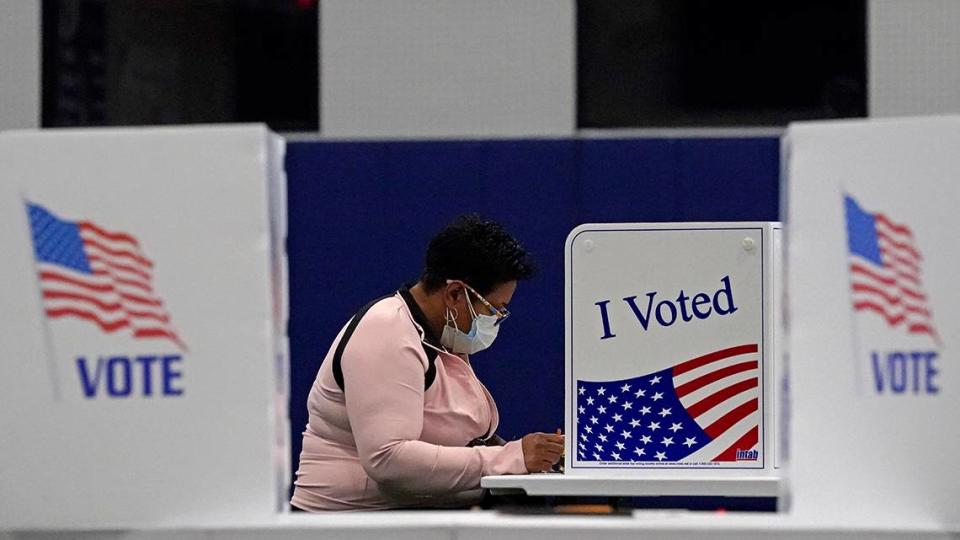
‘Voter suppression’: Kansas lawmakers advance changes to take control of elections
While Georgia’s new discriminatory voting rights law has drawn a lot of just criticisms, the state is not alone. The controversial law, passed by a GOP-controlled legislature and signed by Republican Governor Brian Kemp, has been at the forefront of a nationwide Republican push to change election laws following the 2020 presidential election and largely baseless claims of voter fraud.
The Star’s Katie Bernard writes:
Kansas lawmakers, following a trend in Republican-controlled statehouses nationwide, gave initial approval Wednesday to bills that would strip the executive and judicial branches of some authority over elections and make it more difficult to cast a ballot by mail.
One of the measures would bar the Governor and courts from altering election laws. The other limits who is permitted to return a mail-in ballot on behalf of another person and makes it a felony for an individual to return more than five mail-in ballots.
Opponents, including the NAACP, ACLU and Disability Rights Center of Kansas , have said the mail ballot measures constitute voter suppression and will make voting more difficult for many Kansans.
Sen. Mary Ware said the legislation took away voting rights to resolve issues that didn’t exist.
“What we’re talking about here is voter suppression, nothing less,” Ware said.
And in Missouri, the St. Louis Dispatch wrote, the House approved a changes in state election law that was met with strong criticism from Democrats.
The legislation imposes photo ID requirements for voting, which voting rights advocates say could pose an undue hardship, especially on the poor, racial minorities, the elderly and voters with disabilities.
The measure also prohibits counting absentee ballots until all Election Day ballots are counted, potentially delaying results...
Rep. Joe Adams, D-University City, said the proposal was “despicable.”
“History is going to record that the Missouri Legislature has voted to disenfranchise people,” Adams said. “We’re trying to fix a problem that does not exist.”
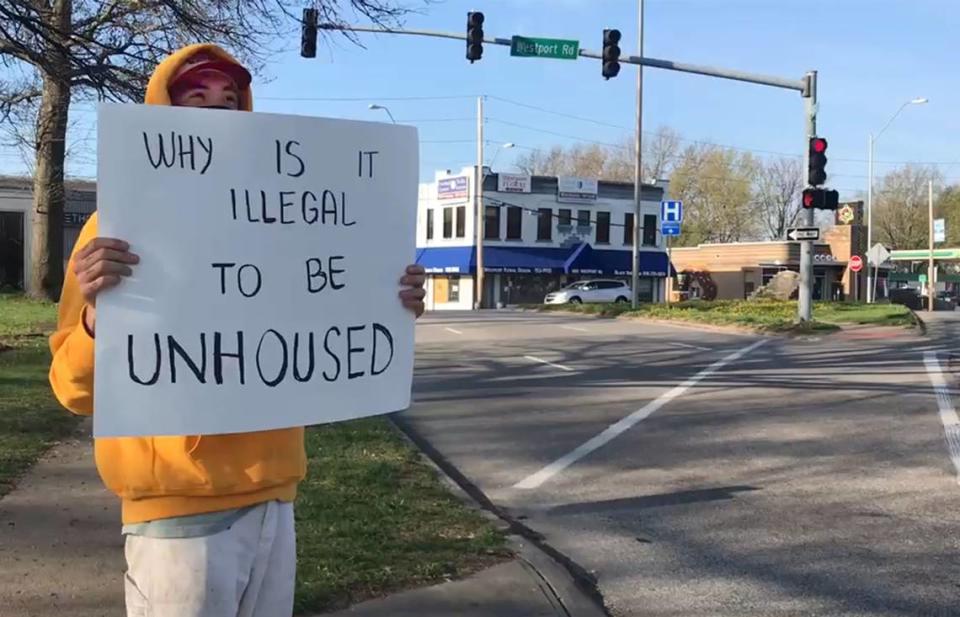
The threat of sweeps and the future of Kansas City’s homeless communities
The early part of the week in Kansas City was steeped in fear the city would execute one or more “sweeps” on two prominent homeless encampment, displacing hundreds of unhoused individuals who have — at least temporarily — put their stakes in the ground outside City Hall and a grassy median amid one of the city’s busiest thoroughfares.
The two camps, erected as forms of protest, have drawn the attention of the city and Mayor Quentin Lucas who has spent every day meeting with the homeless union outside of City Hall.
The Star’s Anna Spoerre writes:
James Shelby, 60, who goes by Qadahfi, sat across from the mayor and Councilwoman Ryana Parks-Shaw outside City Hall. Qadahfi, a leader of the homeless union, was flanked by members of KC Tenants as he told Lucas about issues they’ve experienced at the encampment. He reiterated the union’s demands: homes, jobs, water and a seat at the table where decisions are being made...
Lucas, who himself experienced homelessness as a child, said he would continue showing up to the encampments until a solution was reached.
“The question is, ‘when do people have to move?’ I think the answer right now is ‘I have no idea,’” Lucas said Tuesday afternoon. “My view is that it’s more important for us to actually try to make sure that we have services for folks here in the short term, and then showing that there are also long-term opportunities as well.”
On Thursday, Mayor Lucas sat down with the union again and told them a resolution would be brought before the city council to provide hotels for 90 days. That will give time for stakeholders to work on two other goals: a land bank for permanent housing and a workforce initiative.
Beyond the block
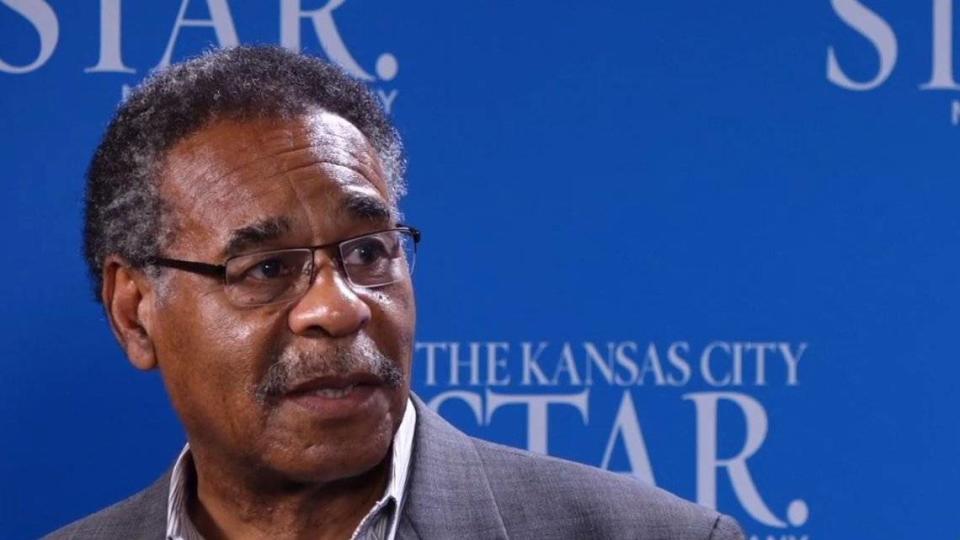
The Bill for Reparations
The Kansas City city council is set to vote on whether or not to thrown its support behind a bill, H.R. 40, that would establish a commission tasked with studying and developing proposals for reparations for African Americans. While it means little in the relative future, the introduction of the bill and support around it — it has 173 cosponsors in the U.S. House of Representatives (Kansas City’s Emanuel Cleaver among them) — sets the stage for material conversations and even movement on reparations going forward.
The commission shall examine slavery and discrimination in the colonies and the United States from 1619 to the present and recommend appropriate remedies. Among other requirements, the commission shall identify (1) the role of the federal and state governments in supporting the institution of slavery, (2) forms of discrimination in the public and private sectors against freed slaves and their descendants, and (3) lingering negative effects of slavery on living African-Americans and society.
In March, Evanston, Illinois, established the country’s first reparations program. The city council approved expenditures aimed at addressing “past discriminatory housing policies that have impacted Black people by allowing eligible residents to receive up to $25,000 to put toward mortgage and down payment assistance, home improvements and more. People who qualify for the money must have Black ancestry and have been an Evanston resident between 1919 and 1969, or a direct descendant of an individual harmed by discriminatory housing policies or practices during this period,” Alex Samuels writes for FiveThirtyEight.
Also check out...
He Was Charged in an Anti-Asian Attack. It Was His 33rd Arrest.
Biden to take first limited steps on gun control, including on ‘ghost guns’ and pistol braces

American Jobs Plan: $2 trillion to rebuild infrastructure, reshape the economy
Last week President Biden laid out his $2 trillion plan to bolster the country’s infrastructure and lift up the economy. There’s quite a lot in it, and surprise surprise, Republicans take issue with the level of spending.
Senate Minority Leader Mitch McConnell said last week during a press conference that, “I’m going to fight them every step of the way, because I think this is the wrong prescription for America.”
One of the big issues has been the proposed plan to raise the corporate tax rate to 28% in order to help offset the spending.
But here are just a few of the things the bill would do that could benefit y’all, Americans. New York Magazine (and so many other places really) broke it down...
$45 billion to eliminate lead pipes:
Biden wants to eliminate 100 percent of lead piping across the country and intends to reach this goal by having $45 billion in funds directed to the EPA’s Drinking Water State Revolving Fund.
$213 billion for housing:
Biden says this amount is needed to “produce, preserve, and retrofit more than two million affordable and sustainable places to live.” Forty billion dollars would go toward improving the infrastructure of the country’s public-housing system. Biden also calls for the elimination of local and state exclusionary zoning laws and for Congress to pass the Neighborhood Homes Investment Act, which he says will result in 500,000 newly built or rehabilitated homes.
$100 billion to schools:
This investment would go toward upgrading and building new public schools. Fifty billion dollars of this money would come from direct grants, and the other $50 billion would come from bonds.
For the culture
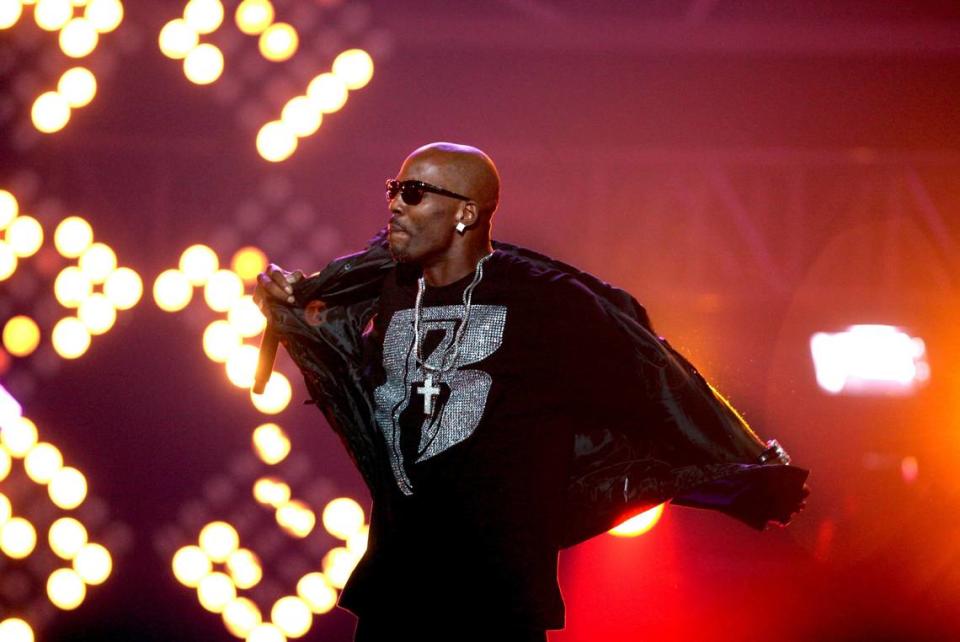
DMX on Life Support in ‘Vegetative State’
DMX’s music has, over the course of the last week, served as the soundtrack to many of my mundane, everyday tasks: making coffee and frothing milk to “Ruff Ryder’s Anthem,” browsing grocery store aisles to “What’s My Name?,” and cleaning out the litter box to “Party Up.”
The embattled 50-year-old Ruff Ryders rapper, who was an anomalous staple for middle school me, was rushed to the hospital over the weekend after suffering a heart attack, reportedly brought on by a drug overdose.
I don’t think there’s anyone who has rapped over a beat like DMX — whose real name is Earl Simmons — always like he’s trying to exorcise it, or something.
DMX has struggled openly with substance abuse and has been in and out of prison over the years. He put it all in his music.
The New York Times spoke to Murray Richman, a lawyer who has represented Mr. Simmons for 25 years:
“He is truly an amazing person,” Mr. Richman said. “He walked into a room, he lit up the room. He couldn’t help making you feel good in his presence.”
Mr. Richman acknowledged that Mr. Simmons, 50, had lived a “difficult life,” adding that he shared it with the world through his music.
“He expressed the pain and suffering in a very unique way,” Mr. Richman said. “He truly is reflective of a whole segment of our society whose pain and suffering go unrecorded.”
Don’t miss this...
Tiger Woods Was Driving About 85 M.P.H. in a 45 M.P.H. Zone When He Crashed
Ray Fisher Opens Up About ‘Justice League,’ Joss Whedon and Warners
A Conversation on Race, Part III – Baseball: The Color Barrier
Kansas City Monarchs Baseball shop at Legends to sell T-shirts, hoodies, onesies, more

Chet Hanks’ chaka chaka ‘White Boy Summer’
You guys, I really wanted to delve into the wild world of Tom Hanks and Rita Wilson’s other son, Chet Hanks, who has declared summer 2021 “White Boy Summer,” but it’s a mess.
The Patois-speaking second youngest of the Hanks clan took to social media recently to say “I’m not talking about like, Trump, NASCAR type white. I’m talking about me, Jon B., Jack Harlow, type of white boy summer.” Jon B. and Jack Harlow, much like Chet himself (I guess) are, let’s say, invited to the cookout kind of white boys.
He went on in another post to lay out some rules and regulations for White Boy Summer 2021, ostensibly to dispel any concern that it’s an open invitation for those of the tiki torch variety.
But I’ll turn the discussion on this matter over to Vice’s Gita Jackson, who playfully runs through Chet’s past relationship to the Black queens and the Black community in her piece. Also this well-nuanced grappling with the timing of the concept of a “White Boy Summer” from The New Yoker’s Naomi Fry:
Watching Hanks navigate his way through his new gambit, I felt that he was tap-dancing on thin ice. Part of my interest in his videos, I realized, stemmed from the fear that, at any moment, he might tip over from playful, open-handed fun to hard-core racism. Even though his connection to his well-liked father (who—as a Twitter joke had it some years ago—might even secretly be a Black man) helped defang his videos, somehow made them feel safer, the danger was nonetheless clear and present. With each new post, I wondered, was this going to be the one that crossed the line, and then I breathed a sigh of relief when it didn’t.
Long story short, “White Boy Summer” is already canceled.
Inna di morrows!
Did someone forward this newsletter to you? You can sign-up here. If you’d prefer to unsubscribe from this newsletter, you can do so at any time using the “Unsubscribe” link at the bottom of this message.

